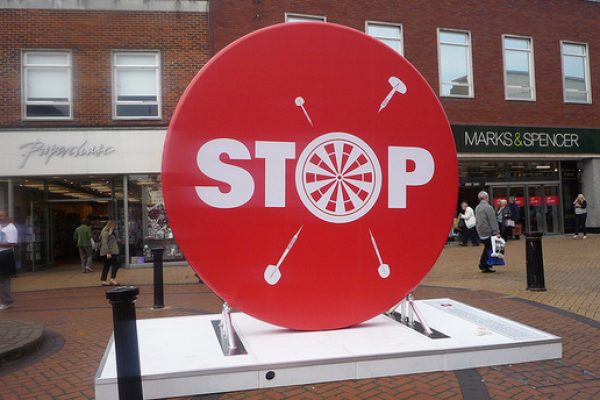For many women having a healthy baby is something they dream of since their childhood. But for women who smoke this is not always the case. There are more than 10% of women who smoke throughout their pregnancies. Statistics calculate that 1 in 5 babies have low-birth weight, increased preterm deliveries and babies are 3 to 4 times more likely to die of SIDS(Sudden Infant Death Syndrome). Asthma among infants and young children has been linked to mother's who smoke and the odds of developing asthma is twice as high with children whose mothers smoke more than 10 cigarettes a day.
It is harder for women who smoke to become pregnant and they are more apt to have a miscarriage. One million babies are born each year worldwide to mothers who smoked during pregnancy. When a baby still in the womb is exposed to such dangerous compounds as nicotine, carbon monoxide and tar it can cause the womb to pull away from the uterine wall too early and cause bleeding which is dangerous for the baby and the mother. U.S. health care costs for newborns of mothers who smoke is estimated to be $740 per smoking mother or $366 million a year.
Babies that are born to women who smoke are much more likely to have birth defects such as cleft palate or lip, limb abnormalities, club feet, congenital heart defects, down syndrome, undescended testes in boys, abnormally shaped faces, missing or shortened arms and legs. And if both parents smoke the risk is even higher.
In a study published in the journal called Neuropsychopharmacology it reported that women who smoked while they had babies in the womb could give birth to babies with smaller brains(less grey and white matter) and that the baby would be more apt to be at risk for anxiety and stress. It is suspected that tobacco can affect the developement of babies by destroying neurons, arteries becoming clogged, and also reduce oxygen flow because of narrowing the blood vessels. Experts now believe that exposure to tobacco while a baby is in the womb can cause disorders psychologically from childhood to young adulthood.
Dr. El Marroun, of the Erasmus Medical Centre in Rotterdam, Netherlands said that 'The results of the current study in combination with the existing literature about the long-term effects of pre-natal tobacco exposure emphasize the importance of preventing and reducing cigarette smoking during pregnancy."
Many women are able to stop smoking when they become pregnant but those with mood disorders find it harder to do so. Experts have found that from one third to one half of pregnant women who smoke do have mood disorders. Finding help for depression is harder because of the fear of anti-depressant type medicines hurting the baby.
After the baby is born nicotine and other harmful materials from the tobacco smoke can be passed through the breast milk to the baby and affect it right way. Babies who are exposed tend to sleep less and are more apt to have colic. Breastfeeding is felt to be healthier than bottlefeeding. Breastfeeding provides many immunities that help the baby ward off illness.
There are several things a mother who breastfeeds and smokes may experience. These include lower milk production, early weaning, an interference with milk 'let-down'(milk ejection), prolactin is in lower levels, and in some areas iodine deficiency. It is important to smoke after breastfeeding never before.
Cigarette smoking and exposing second hand smoke to other people can both cause health issues. In the U.S. there are 88 million adults and children that do not smoke that are exposed to others smoke. There is no safe level of breathing in another person's cigarette smoke. Nearly 32 million children 3-19 are exposed to other people's smoke from cigarettes. To protect yourself and your family from smoke you must make some conscientious decisions. One is to ask people not to smoke around you and your family and making your home a smoke-free environment. Small babies should never be held by someone that has just smoked. Smoke permiates the clothing and can cause problems over time. Infants can develope asthma, get ear infections, eye irritations, allergy related illnesses, croup and SIDS in the very young. Make sure that day cares, restaurants, and places where you do business are all smoke free. Teach your children to stay away from smoke. If your children have respiratory conditions, if you have COPD or heart disease, and if you are pregnant, you are more in danger from the effects of smoke.
From just one day of not smoking your baby in the womb will be getting more oxygen. There is less of a risk that your baby will be born too early if you stop smoking. And you will have a better chance of that little bundle of joy coming home with you if you made the decision to stop smoking during your pregnancy. Quitting smoking within the first three or four months of pregnancy can lower the chances of a baby being born premature or having any health problems related to smoking. Not smoking will give you more energy after you give birth. You will breathe easier, food will taste better, and you will smell better. You'll have cleaner teeth, fresher breath, fewer skin wrinkles, no stain marks on your fingers, you will have a better sense of smell and taste, and more money to spend on your baby.
There are those who feel that changing their cigarettes to 'low tar', 'mild' or 'light' is a better choice during pregnancy. The less you smoke or are around smoke the better you and the baby will be. The best choice is to quit smoking completely so you will have both a healthy pregnancy and baby.
Thank you for reading my piece. I hope you will vote for it if you like it.











